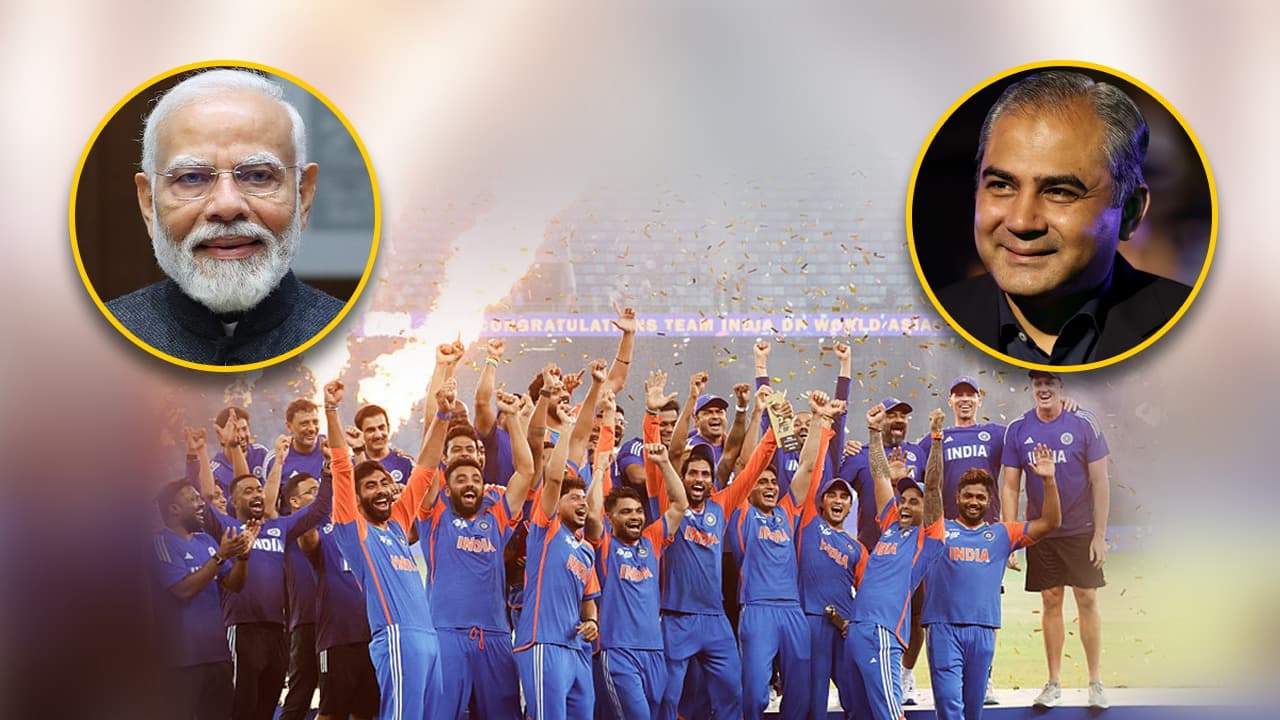India’s Asia Cup triumph sparks a fiery response from Pakistan’s Mohsin Naqvi after PM Modi likened the win to Operation Sindoor. From Tilak Varma’s finishing heroics to India’s refusal to accept the trophy, the clash went beyond cricket.
When India lifted its ninth Asia Cup title on Sunday, the celebration extended far beyond the cricket field. Prime Minister Narendra Modi, taking to X, drew a striking parallel between the Asia Cup final and India’s military action, posting:
“Operation Sindoor on the games field. Outcome is the same – India wins! Congrats to our cricketers.”
Scroll to load tweet…
The response from Pakistan came swiftly, and, to many observers, embarrassingly. Mohsin Naqvi, Pakistan’s Interior Minister and chairman of the Asian Cricket Council, lashed out at Modi, writing:
“If war was your measure of pride, history already records your humiliating defeats at Pakistan’s hands. No cricket match can rewrite that truth. Dragging war into sport only exposes desperation and disgraces the very spirit of the game.”
Yet, the context surrounding Naqvi’s remarks tells a story quite contrary to his bluster.
Scroll to load tweet…
Also read: Will Naqvi’s Asia Cup Trophy ‘Runaway’ Act Trigger ICC Action? Furious BCCI Gun for Ouster
Pakistan’s Military Missteps: History Repeats Itself
Naqvi’s claim that India has suffered “humiliating defeats” at Pakistan’s hands does not hold water when the historical record is examined.
- Operation Gibraltar 1965: Pakistan’s attempt to ignite insurgency in Jammu and Kashmir failed spectacularly, costing its military dearly.
- East Pakistan 1971: Pakistan lost its eastern wing, leading to the creation of Bangladesh in a devastating military defeat.
- Kargil War 1999: Pakistan’s infiltration ended in failure, suffering a bloody nose against Indian forces.
More recently, India’s Operation Sindoor, launched in retaliation to the Pahalgam terror attack that left 26 Indian tourists dead, dealt another symbolic blow to Pakistan. The operation targeted terror outfits based in Pakistan, demonstrating the futility of Pakistan-backed militant actions.
Modi’s X post referencing Operation Sindoor was not just a playful nod to cricket dominance—it was a subtle reminder of Pakistan’s repeated failures in confronting India militarily.
Scroll to load tweet…
Cricket as a Mirror of National Pride
The Asia Cup final itself mirrored these geopolitical tensions. India’s left-hander, Tilak Varma, displayed nerves of steel, guiding India to victory with a stunning finish. Needing 10 runs in the last over, Varma drove Pakistan’s Haris Rauf to the stands before Rinku Singh sealed the win with a boundary that sent Indian fans into ecstasy.
But the match was about more than cricket—it became a stage for confrontation. The Indian players, recalling the Pahalgam terror attack, refused to shake hands with their Pakistani counterparts once again, breaking from the expected decorum of the sport.
Bumrah’s cheeky “crashing plane” send-off for Haris Rauf went viral, a clear retort to Rauf mocking India’s Operation Sindoor earlier in the tournament. Even the trophy presentation descended into drama when the Indian team refused to accept the trophy from Naqvi, leaving the ceremony incomplete and forcing the team to celebrate online with trophy emojis instead.
Scroll to load tweet…
Scroll to load tweet…
Mockery and Retaliation: A Battle Beyond Boundaries
The hostility extended beyond the field. Indian players creatively highlighted their triumph and Pakistan’s absence of sportsmanship through social media:
Arshdeep Singh, Jitesh Sharma, and Harshit Rana mocked Abrar Ahmed’s signature head-tilt.
Varun Chakravarthy shared images of a lone tea cup, symbolizing the missing trophy.
Hardik Pandya and others posted pictures replacing the trophy with emojis, making a pointed statement on Pakistan’s decorum—or lack thereof.
Pakistan, predictably, tried to frame India’s actions as disrespectful, with skipper Salman Ali Agha lamenting, “What India have done this tournament is very disappointing. They are not disrespecting us by not shaking hands, they are disrespecting cricket.”
The irony, of course, is that Pakistan’s repeated provocations throughout the tournament—from obscene gestures to verbal taunts—set the stage for India’s pointed responses.
Naqvi’s Words vs. Reality
Naqvi’s X post, aimed at discrediting India’s victory, only highlighted Pakistan’s perpetual defensiveness. Claiming past victories against India is a fragile narrative at best, especially when history and recent events tell a different story. From the catastrophic loss of East Pakistan in 1971 to Operation Sindoor’s tactical successes, the truth remains undeniable: Pakistan has struggled to assert military or moral superiority over India.
By attempting to drag war into sport, Naqvi revealed a deeper desperation, highlighting Pakistan’s inability to cope with both cricketing defeat and the symbolic reminder of India’s operational successes against terror threats.
Victory Beyond the Trophy
For India, the Asia Cup win was not just about cricket—it was about sending a message. From Tilak Varma’s composure to Bumrah’s viral send-off, from social media celebrations to the principled refusal to accept the trophy from Naqvi, the Indian team ensured that the triumph resonated far beyond the scoreboard.
In the end, as Modi’s post aptly captured, India wins—on the field, and in spirit. Pakistan’s bluster in response only solidifies the narrative of a nation struggling to reconcile repeated defeats with mounting provocations.
India’s message is clear: cricket, like history, remembers victories—and Pakistan’s attempts to rewrite the past will always ring hollow.
